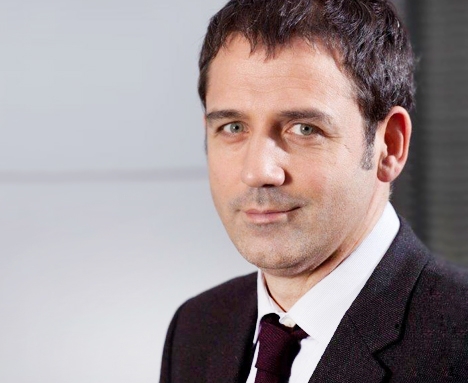What is your current role and what is Catalonia government’s vision on road safety?
I am a civil engineer and for twenty years I worked at the public administration of the government of Catalonia, with different responsibilities, from territorial planning to the development of public transport infrastructure. For the last seven years, I have been responsible for the road network of the Catalonian government, six thousand kilometres of heterogeneous roads from big motorways with more than one hundred thousand vehicles per day to rural roads carrying only a few hundred.
Being in charge of the road network of Catalonia, I encounter road fatalities. Although I don’t witness them in the physical sense, I receive real time messages and reports on every death that takes place. I meet continuously with the different actors involved – the police, maintenance technicians, road designers and the citizens’ platforms and associations that represent the families of the victims. This is a strong personal experience which brings me the personal stories of pain and suffering behind the statistics and data. The whole team of the General Direction is committed to two topics. The first one to implement our “zero vision”, and the second, directly derived from the first, is to work hard to ensure that our roads are a safe system. Today the “zero vision” concept is wider accepted and shared by all the different actors. However, sometimes people still understand “zero vision” like a goal, a long-term goal. But it is an idea to be implemented right now, not linked, at least not only, with an objective but a general position and an attitude.
Why did you choose to partner with EuroRAP? What would you advise other road authorities when assessing the safety of the road infrastructure?
We are a Member of EuroRAP and I am serving at the board to enhance the future strategy. Thanks to our cooperation with RACC (Royal Automobile Club of Catalonia), we present every year in a public press conference the results of the crash rate risk maps and also Star Ratings that we elaborate together following the EuroRAP methodology. We need to evolve from the classical reactive to a preventive approach in order to reduce accident levels on a big scale using different methodologies for the assessment of the whole network. I believe that cooperation with mobility clubs and road authorities should be strengthened all over Europe, especially on road safety assessments.
Can you share a success story by using the EuroRAP protocols?
One of the most important problems that I had when I took up role was the extraordinarily grave situation on one road axis, the C 55 and C 58. Every year on this thirty km of roads we had 10 fatal accidents, most of them involving head-on crashes. To transform these roads to a highway wasn’t the solution as it was too expensive – more than a hundred million euro; and, altogether, with a toll highway in parallel, this approach was inefficient. For these reasons, we decided, for the first time in Catalonia and in Spain, to transform these roads into 2+1 and to install a physical barrier to avoid head-on crashes and separate streams of circulation. We tailored a solution adapted to all the circumstances of the road, with less investment and with the capacity to act very quickly, dividing the works in different projects. We had a lot of criticism about what we are doing, from local politicians and citizens, they didn’t understand what we were doing, because it was the first time that anyone had used a solution like this. But the success has been extraordinary, we have reduced the road fatalities to zero in 2017, and to one in 2018 which happened at a point where there was no central barrier. At this moment people who initially refuted the solution congratulated us for the initiative. In this process we used EuroRAP protocols to analyze and evaluate the original situation and develop the necessary road safety investment plans.
In view of this, we believe the SLAIN project could help us continue our efforts on vision zero and road safety assessment work especially with the requirements of the Directive 2008/96/EC and to prepare our road network to accommodate autonomous vehicles.
Do you have a 6-word story about what is EuroRAP for you?
There is no management without assessment


















